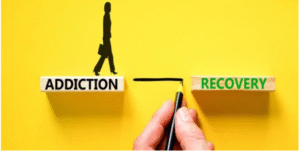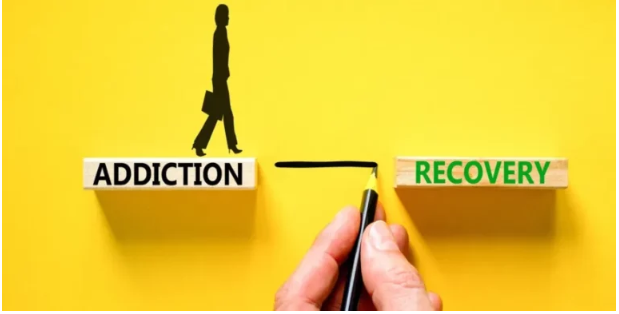Road to Sobriety: Hope and Healing Right Along Discovery
Road to Sobriety cannot be reached straight forwardly. It moves through stages of doubt, tenacity, grief, and at last hope. Many addicts find the concept of a life free from drugs far-off, if not unreal. Millions of individuals have taken this road before, but they have found that recovery is about healing, rebuilding, and reclaiming life—not only about avoiding drugs or alcohol. Among the most difficult but transforming adventures one can go on is toward sobriety.
Every year, millions of Americans alone deal with addiction. According to estimates by the Substance Abuse and Mental Health Services Administration (SAMHSA), over 40 million persons 12 years of age and over battled a substance use disorder (SUD). Recovery is still possible even if addiction is somewhat common. Based on estimates of 75% of addicts at last recovering, hope and recovery are not only realistic but also most possible with the correct support and commitment.
Sobriety is an always changing process of growth rather than a destination. It calls for tenacity, bravery, and a readyness to face ingrained feelings and behaviors. Although everyone’s road is different, most recovery narratives follow four broad lines: acceptance, support, healing, and rediscovery of self.

Understanding Demand for Transformation
Many times starting the road towards sobriety is a revelation that drug addiction has rendered life unbearable. Some find this time following a crisis—that of a broken relationship, lost job, or medical problem. For some, it is a more subdued awareness—that they have lost control over their own lives.
Addiction changes the reward system in the brain, therefore influencing decision-making and promoting negative behavior. Addiction changes brain chemistry, hence people find it difficult to just “choose” to stop using drugs, claims the National Institute on Drug Abuse (NIDA). This is the reason competent therapy and support systems are typically extremely necessary. Understanding one needs aid marks a major turning point in life.
Even if this is among the toughest tasks, overcoming the challenge helps one grow. Addiction is a medical problem requiring treatment; consequently, rather than moral failing, it calls for humility and self-compassion.
Dealing with Community Support and Assistance
None of them go clean on their own. While isolation defines addiction, recovery mostly depends on connection. Many times, the encouragement of individuals who know their challenges helps those committed to sobriety find strength. Treatment centers, support groups, families, friends all reflect this feeling of community.
Programs providing peer support include Alcoholics Anonymous (AA), SMART Recovery, and Narcotics Anonymous (NA), setting where people may share their stories and inspire one another. Studies reveal that people in peer support groups are far more likely to stay sober.
Regular attendees of 12-step meetings were twice as likely to remain abstensive as those who did not, according a study recorded in the Journal of Substance Abuse Treatment.
Professional treatment provides both necessary direction and peer support. Addiction treatment covers the psychological as well as the physical components of substance use whether through inpatient rehab, outpatient programs, professional detox centers, or counseling. All in a controlled and inspiring surroundings, these programs give people strategies to control impulses, manage stress, and prevent relapses.
Maintaining Mental and Physical Healing
Sobriety is about healing the mind and body, even if it is mostly about stopping drugs. Many times, drug use masks more severe emotional suffering, trauma, or mental illness. Recovering sustainably calls for resolving these fundamental problems.
Trauma-oriented counseling, dialectical behavior therapy (DBT), and cognitive-behavioral therapy (CBT) among other therapeutic modalities enable patients to find the basic reasons of their addiction. These treatments provide emotional control, resilience, and coping mechanisms. NIDA emphasizes the need of mental health treatment on the road to sobriety since adding CBT into addiction therapy can lower relapse rates by up to 50%.
Additionally highly important for rehabilitation is physical wellness. Extended drug usage can harm the body and cause several health issues including food shortages, compromised immune system, and other disorders. Along with medical advice, exercise programs, and dietary assistance, many rehab centers include physical wellness into their treatment strategies. These all-encompassing methods assist the body to be repaired, therefore supplying the energy and power required for the emotional job of healing.
Finding Identity and Objectives Once More
One of the main benefits of sobriety is rediscovery of oneself. Addiction sometimes causes one to feel lost in passions, relationships, and ambitions. Recovering is about reconstructing a life that appears relevant and fulfilled, not about avoiding drugs.
Recovering people can rediscover activities that fit their values or re-connect with former passions that once made them happy. Keeping healing mostly depends on this rediscovery process. Pursues of meaningful employment, interests, volunteer activity, or creativity give one direction that keeps one from relapsing.
Still another essential aspect on this path is rebuilding relationships. Addiction can sour ties to family, friends, and business contacts fairly significantly. While this process takes time and effort, sobriety is an opportunity for mending of these connections. Many people in recovery discover that consistency in development, open communication, and setting limits assist to regain trust.
Getting Development and Beyond Obstacles
One also faces difficulties towards sobriety. Common ones are times of doubt, mood fluctuations, and relapse. Still, these challenges are inevitable in the path of development; they do not stop development. Addiction is described by the American Society of Addiction Medicine (ASAM) as a chronic illness, thus relapse can happen exactly as in other chronic diseases. Still, every difficulty encountered strengthens individuals and sharpens their senses.
Generally speaking
Instead of merely the absence of drugs or alcohol, sobriety is presence of hope, purpose, and connection. Though it is extremely personal and difficult, most of the time the road to sobriety pays out rather handsomely. It presents an opportunity to mend relationships, repair scars, and lead an honest and fulfilled life.
Millions of people have found, beginning this road, that rehabilitation not only alters their lives but also is feasible. Acceptance, community, healing, and rediscovery help sobriety to transcend mere goal. It becomes normal, full of fresh opportunities and the hope for a better future.
Everyone battling addiction or helping someone else on this road has hope and can recover. Though the road may be long, each step taken advances one toward a life shaped not by addiction but by strength, resiliency, and happiness.
